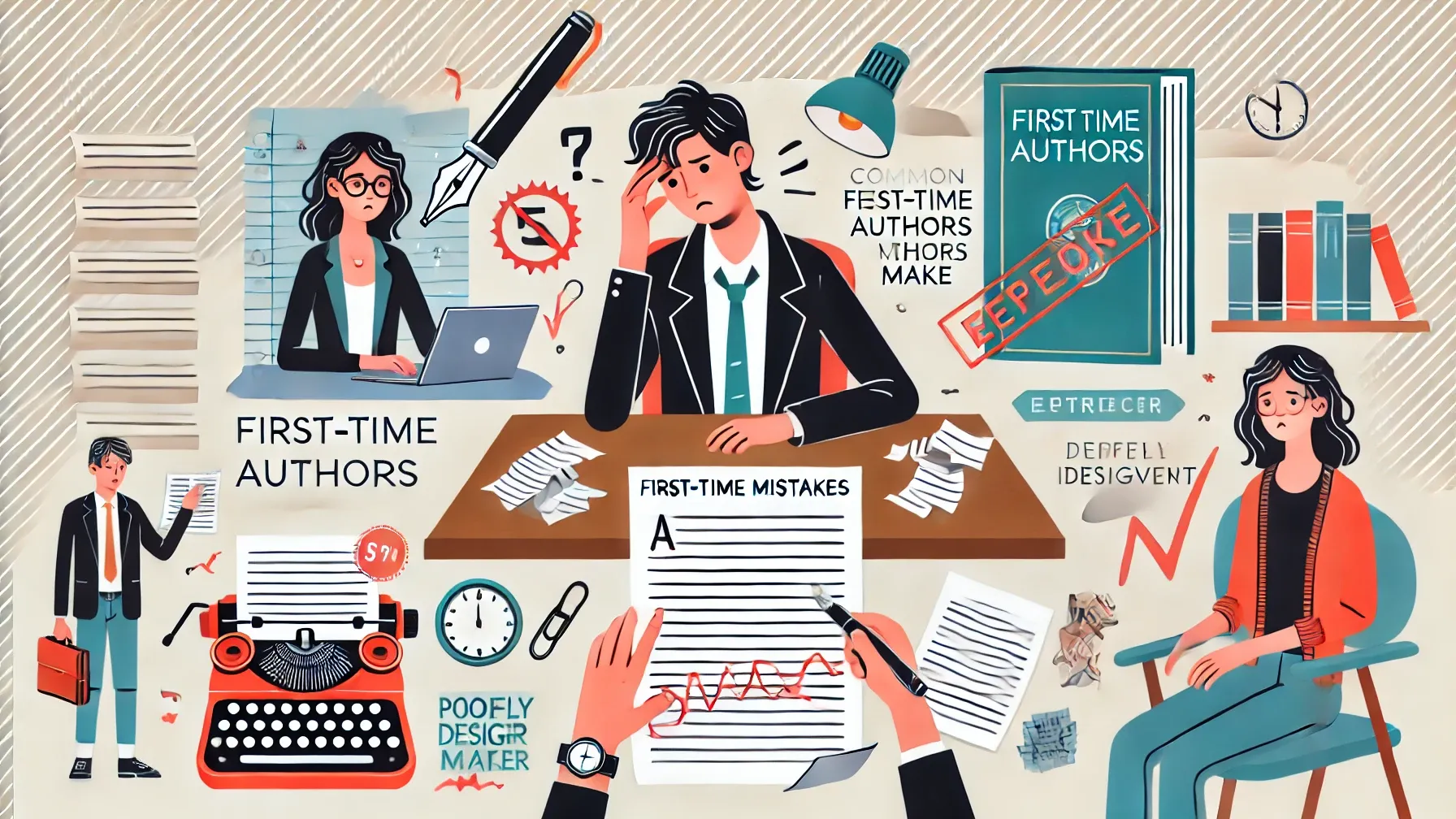Top 5 Mistakes First-time Authors Make (and How to Avoid Them)
Feb 19, 2025
Almost everyone I associate with either has a book or would like to be a published author. But writing a book takes work and dedication and many feel it is impossible to get published. This keeps countless potential authors from reaching their goal, even though the self-publishing industry has made publishing very accessible. The key, however, isn’t just to have a book, but to have a great book. Having spent years working with hundreds of authors, I’ve identified the top 5 mistakes that first-time authors make; it is the first one that stops most from even getting started.
Mistake Number 1: Thinking About the Finished Book
I know many people who write very well. Their emails, blogs, and even articles are fantastic, but as soon as they begin thinking about writing a book, they freeze up. The pressure of having their words memorialized in a printed book makes them think the writing has to be perfect. Also, in this vein, staring at the first blank page of 250-page book is overwhelming. Don’t let this be you. First, take a deep breath and know that no first draft is perfect. Second, don’t think about the entire book, but rather focus only on the first paragraph of the first section of the first chapter. Let paragraphs turn into sections, sections into chapters, and chapters into a book. You can often avoid the first top mistake of first-time authors by just starting to write.
Mistake Number 2: Skipping Professional Editing
Many new authors believe they can edit their own work, relying on spell check or self-editing alone. However, even the most experienced writers need a professional editor. Self-editing can only take you so far, and without a fresh, trained set of eyes, your manuscript may be riddled with structural issues, awkward phrasing, or grammatical errors. Take it from someone who used to teach writing and grammar at the university level (who also needs an editor), professional editing is an important step in any book. Avoid having a sub-par book by budgeting for editing as part of your publishing plan.
Mistake Number 3: Designing a Weak Cover
First-time authors often underestimate the importance of a professionally designed book cover. A common mistake is trying to design it themselves using generic fonts and stock images. Even more common is the first-time author who has a husband, uncle, or friend who is a graphic designer. It is important to know that book cover design is different from general graphic design. Things like thumbnail size, spine width, and even book cover trends are understood by cover designers and not by all designers. Avoid having a non-professional-looking book by hiring a cover designer. A strong cover should not only be visually appealing but also convey the genre and tone of the book. Look at popular books in your category for inspiration, and ensure your cover meets industry standards for both digital and print formats.
Mistake Number 4: Failing to Identify Your Target Audience
Many first-time authors write with the assumption that their book is for “everyone.” However, without a clear target audience, marketing becomes nearly impossible, and the book may fail to resonate with readers. Avoid missing your target audience by writing out a detailed avatar (perfect reader) for your book. Consider demographics such as age, interests, work, and reading habits. While a good book will transcend all of these categories, your writing will be most impactful if you focus on the exact person you want to communicate to. When it comes time to market your book, this understanding will also help you craft effective messaging and promotional strategies.
Mistake Number 5: Failing to Provide Both Information and Story
Whether you’re writing a math textbook or a novel, you want both information AND storytelling. One of the most impactful math books I had in high school had a short introduction to each chapter with a biography of someone in mathematics, (I remember one was Pythagoras) then on to the math principles… But, guess what. I was more excited to learn the math after making a connection with the material. Also, one of my favorite things while reading novels is learning new things (information). Avoid boring readers through paragraphs and paragraphs of information only and avoid sharing story after story with no lessons learned. Most of the best books I’ve read, particularly in the non-fiction space have been a great combination of information to teach me something I don’t know and stories to help me relate to the things I’m learning.
Writing a book is an incredible achievement, and avoiding these common mistakes will help ensure that your book is well-received and professionally presented. No matter where you are in your publishing journey, taking the time to do things right will make all the difference. Avoid the common pitfalls listed above, and you’ll be well on your way to launching a book you can be proud of and a book that has the potential to change lives.

